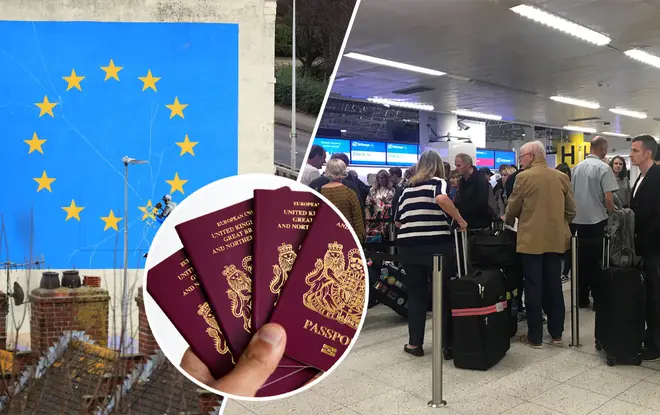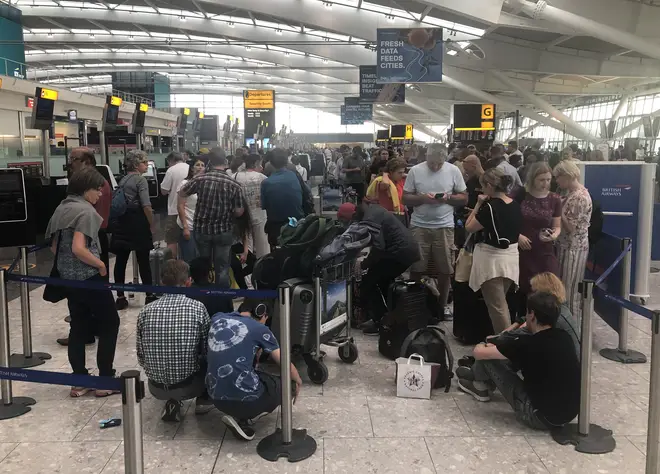How will Brexit affect half-term holidays this October 31st and will flights get cancelled?
15 October 2019, 12:33

A lot of the British public fear that airports could descend into chaos on Brexit day, but that hopefully won't be the case.
Families all across the UK will be heading on breaks across this upcoming half-term as schools break up very soon.
But with Brexit looming and the country looking like we'll be leaving the EU very soon - but what does that mean for the ones travelling abroad?
On October 31st it's expected that we'll be leaving the European Union which is bang in the middle of most schools' half terms.

Some will start their week off as of this weekend (October 18th), while others will start the week after on October 25th.
A number of huge changes will happen to the way we travel around Europe if we leave the EU with a no-deal Brexit, including how our passports work, the different methods of travelling and how travel insurance works too.
Here are the main ways Brexit could affect your half term holidays:
Flights and travel
The government has stated that flights, ferries,cruises, the Eurostar and Eurotunnel, and bus and coach services between the UK and the EU will still run as normal, regardless of whether it's a no-deal Brexit or not.
Some bus and coach services to non-EU countries, such as Switzerland or Andorra, might not run in a no-deal scenario.
There is a chance of disruption on the roads while still in the UK if there is a no-deal Brexit, but there are plans in place for lorries if they are delayed on their way through ports, however, any spillover could affect holidaymakers.

Passports and Visas
There won't be any hassle with passports, we just need to make sure we have at least 15 months of validity on our passports to ensure we're able to travel, in the event of a no-deal Brexit.
This is because the UK would then be subject to the same rules as a non-EU country, so it's best to get a new passport if yours is due to expire in the next 15 months, but remember to pay for fast-track service as it probably won't arrive in time otherwise.
At the moment, Visas aren't needed to travel to any EU countries, which is unlikely to change if we leave and are travelling for under 90 days.
Any trips longer than 90 days and within a 180 period will require you to apply for a Visa.
You might also need to prove you're returning with your return flight details and prove if you have enough money to cover the stay in the country.
Travel insurance and EHIC
Brits who are travelling during and after Brexit are being urged to check their insurance policies to make sure it covers for any issues related to us leaving the EU.
And EHIC will be affecting if we leave with no deal, as the cards that cover some healthcare within the EU will likely become invalid on October 31st.
Some countries have thankfully already organised deals with the UK, such as Spain and Portugal, which will allow Brits the same healthcare treatments as the NHS if you show your passport.































